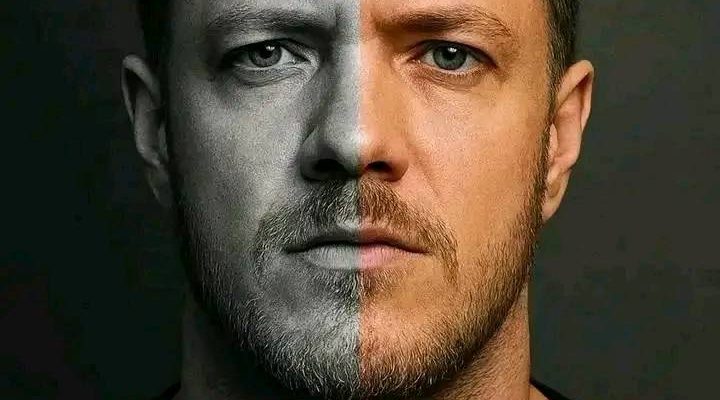Here’s an emotional, raw, unfiltered look at the journey captured in the new Netflix documentary about Dan Reynolds — frontman of Imagine Dragons — a story of spotlight and shadows, of roaring crowds and silent wars inside.
From the very first frame, the documentary pulls back the curtain on the man behind the microphone. We’ve seen Reynolds on stage, commanding arenas, leading anthems, but what emerges here is the off‑stage version: a life lived in two worlds, one illuminated by strobe lights and chanting fans, the other cloaked in quiet rooms, late nights and internal fights. In interviews and unseen footage, Reynolds reflects on how the meteoric rise of Imagine Dragons, from small‑club gigs to global fame, brought more than success—it brought scrutiny, exhaustion and questions of identity. The band’s signature songs—anthemic, explosive—become in this film markers of a deeper struggle: how to hold on to self when the world expects you to be larger than life.
Reynolds speaks candidly about the roots of his formation: growing up in Las Vegas, in a conservative religious environment, trying to reconcile faith with truth, trying to make sense of a voice inside him that would not shut up. That early tension—between duty and desire, belief and doubt—underpins much of what follows. There are scenes of him traveling, recording, writing, intercut with moments of exhaustion: the tour bus at dawn, backstage silence, the emptiness after the roar. He acknowledges the physical toll too: years on the road, health issues, the pressure of being “on” even when he’s drained. The spotlight is seductive, but also blinding.
What stands out is his willingness to reveal vulnerability. He doesn’t just say, “I had success.” He says: “I felt lost. I feared I was losing myself. I kept going because I had no choice but to.” In candid moments, he describes depression, anxiety, the fatigue of always being expected to deliver. The music, the fame—it both saved him and nearly buried him. He shows us that behind “Radioactive,” “Believer,” “Whatever It Takes,” lies a man wrestling with change, identity, purpose.
As the documentary progresses, the narrative threads multiply. One strand is the brotherhood within Imagine Dragons: how friends became band‑mates, how late‑night writing sessions and early demos gave way to millions of streams and sold‑out shows. We see their camaraderie, yes—but also the tensions, the compromises, the moment when art meets business and you wonder what you’re willing to sacrifice for the dream. Another strand is activism: Reynolds’ work beyond the stage, especially his advocacy for LGBTQ+ youth and mental‑health awareness. The film takes care to show that his voice is not just for rock stadiums—but for people who feel unseen. He opens up about how his upbringing, his faith, sometimes felt like weights around his ankles. But he turned that into wings: using his platform not just to perform but to heal, to speak, to rally.
One particularly moving sequence shows him returning to places from his youth—Las Vegas neighborhoods, early rehearsal spaces, the house where he grew up—interweaving nostalgia with reflection. There’s a powerful quiet scene where he walks alone, guitar slung; no crowd, no flashbulbs—just him, the instrument, and the sky. It’s a reminder that the man you see on stage is built from the man who waited in silence, who listened to inner voices, who questioned whether the music was worth it.
The cinematography underscores this emotional journey. Backstage explosions and arena lights are counterbalanced by close‑ups of face, hands, flickering in coffee shops, in hotel rooms: the in‑between spaces. The style isn’t flashy for show—it’s honest. We see a man peel off layers: rock‑god, advocate, dad, friend, wounded human. He talks about fatherhood, marriage, the need to be present when the audience expects more. He talks about making music for himself again—not just for the charts. And we feel that shift: the thunderous drums quieting; the echo of applause fading; and the voice of one man still singing, still asking: What now?
In its final sections, the film doesn’t pretend that everything is resolved. It doesn’t give a neat “and they lived happily ever after.” Instead, it offers something more profound: hope without guarantee, change without destination. We watch Reynolds record a stripped‑down version of a song, lights low, studio still. He falters, wipes a tear. The camera lingers. This isn’t spectacle—it’s confession. Then, stage lights blaze again, audience cheer. He steps forward. But now, we’ve seen the cost. We’ve seen the quiet. We’ve seen the scars.
What stays with you after? Maybe it’s an achy recognition: even heroes bleed. Maybe it’s the line he utters: “The price of being loud sometimes is forgetting why you started to whisper.” Or maybe it’s simply the sight of him unplugged, unplugged from expectation, letting himself be vulnerable before us. That, perhaps, is the most courageous performance of all.
Fans of Imagine Dragons will find plenty here: the rise, the hits, the stage moments. But the documentary is for more than fans. It is for anyone who has ever believed their voice wasn’t enough, for anyone who has stood backstage in life while the world expected a show. It is a reminder that identity is messy, that art is tension, that performance is fragile. It is a portrait of a man using his roar not simply to dominate soundwaves—but to honor silence.
In the end, the man behind Imagine Dragons emerges not just as a rock star—but as a man striving. Striving for balance. Striving for authenticity. Striving to turn chaos into creation, darkness into melody. You watch the film expecting fireworks—and you get them. But you also get the quiet after the echo. You get the doubt before the breakthrough. You get the raw, unfiltered life of Dan Reynolds. And you find, perhaps, a little piece of your own story in his.



